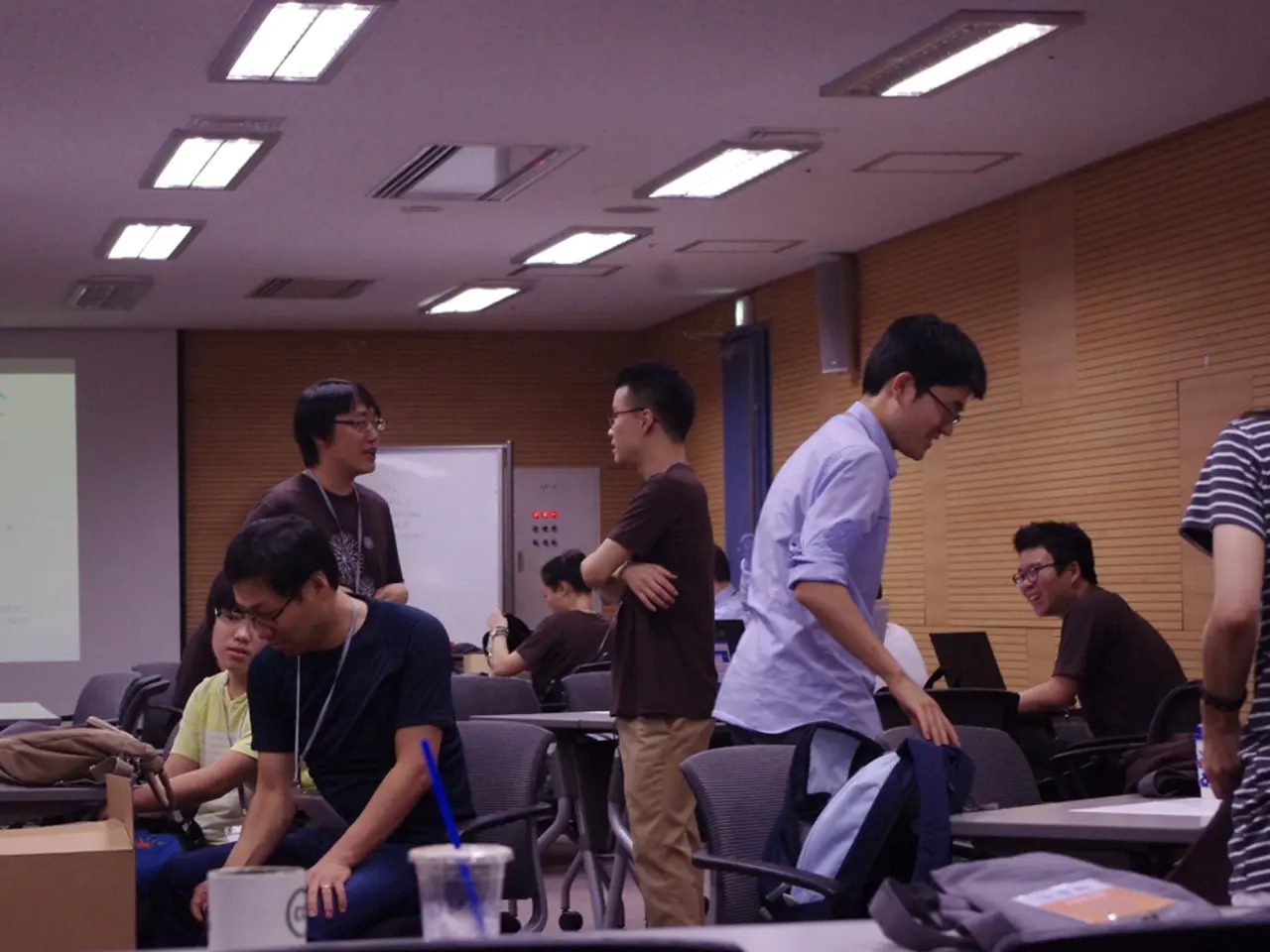Discussing Beyond Toy Cars: A Chat with Jeremy Kiil '24 Regarding Car Lab
In the heart of Princeton University's electrical and computer engineering department, ECE 302: Robotics and Autonomous Systems Lab is a pivotal course for junior students. Here, students embark on a journey to build a remote-controlled car from the ground up, honing their skills in hardware and software.
Alexis Wu, Engineering Correspondent, emphasises the importance of this hands-on experience, highlighting how it can lead to self-discovery and open up new career paths. One such student, Jeremy Kiil, found the process incredibly rewarding, with his skills in troubleshooting, soldering, reading datasheets, part selection, and system thinking significantly improved.
The lab, much like other advanced robotics courses, is likely to involve hands-on work with robotics hardware and software, covering topics like autonomous navigation, sensor integration, robot control, and possibly AI for robotics. It may emphasise complex problem-solving in dynamic environments and adaptive learning systems, as referenced in adjacent fields of advanced robotics research.
However, the interdisciplinary nature of the course can make it challenging for students without prior experience, requiring knowledge of electronics, programming, control theory, and system integration. Common challenges include tiny design errors, tedious tuning of control parameters in code, and inconsistency in the car's operation based on what batteries are being used.
To overcome these challenges, Alexis Wu offers advice. Brush up on foundational skills like programming (likely in Python, C++, or MATLAB), basic robotics concepts (kinematics, sensors), and control systems before starting. Engage actively in lab sessions and projects, as hands-on practice is critical in robotics. Form study groups with peers to share knowledge and troubleshoot. Use office hours and seek help from instructors and TAs early when stuck. Familiarise yourself with tools and simulation environments used in the course. Develop good time management skills, since robotics projects can be time-intensive and iterative. Build a mindset oriented towards iterative design and learning from failure, as robot tasks often require debugging at hardware and software levels.
Jeremy's experience in Car Lab significantly boosted his confidence to apply for hardware roles. While some ECE students realised they preferred software-oriented roles due to hardware's finicky nature, Jeremy found his interest in working in hardware clarified. The main milestones in Car Lab are speed control of the vehicle independent of incline and decline, navigation of a track of black tape within a specified time limit, and an independent final project.
Alexis Wu's article encourages readers to find their own takeaways from Jeremy's story and apply them to their academic and career endeavours. Whether you're a budding engineer or simply curious about the world of robotics, Princeton's ECE 302: Robotics and Autonomous Systems Lab offers a unique opportunity to dive into the fascinating world of robotics and autonomous systems.
- The hands-on experience in Princeton University's ECE 302: Robotics and Autonomous Systems Lab, such as building a remote-controlled car from scratch, can facilitate personal growth and independent work, which might lead to self-discovery and different career paths in the field of education-and-self-development and robotics.
- For students participating in advanced robotics courses like ECE 302, it's essential to engage actively in lab sessions, learn foundational skills like programming and control systems, seek help when needed, work effectively with teams, and develop a mindset oriented towards iterative design, learning from failure, and independent work to ensure a successful learning experience and future career prospects.
- As students gain in-depth knowledge and practical skills through independent work in robotics courses like ECE 302, it can help them determine their career paths and find their niche, whether it's in hardware engineering or software-oriented roles, committing them to lifelong learning and personal growth in the field of learning and personal-growth.




